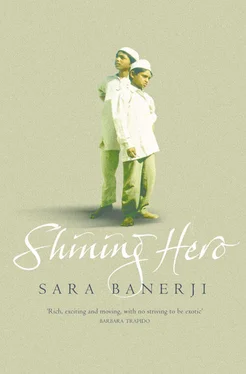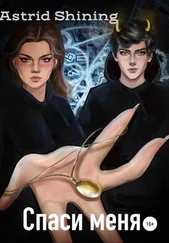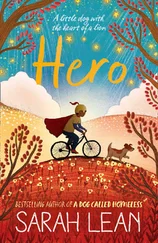The young men and women smiled mournfully. ‘Wait till you’ve been here a week. Once you’ve had three goes of dysentery and been bitten all over at night by mosquitoes and in the day by lice you will be looking just like us.’
‘For two months we have been helping the peasants seize cattle and rice from the jotedars and grab land for redistribution,’ they told Shivarani and Malti as they led them through the village. ‘We have raided the jotedars’ homes and offices, threatened them into giving up the title deeds to the land. At last justice is being done. The rich are being forced to be fair to the landless.’
‘And the police have done nothing to stop you?’ asked Shivarani.
‘Not till this morning,’ she was told.
The police had been in a quandary. Whereas they were sympathetic to the cause of the peasants, indeed many of them had families in the village of Naxalbari, the jotedars were rich and ruthless and the law was being broken. So on the previous day the police had been forced into action and a jeep was sent into Naxalbari to put down the violence.
‘There was a battle and we won,’ the students cried jubilantly.
‘You mean the police just gave in and went away?’
‘We killed one of the policemen and then they realised that they were beaten.’ The students laughed, punched each other triumphantly and danced about, mimicking the events of the day before.
That night Shivarani lay awake for ages and it was not only because of the iron-hard of the mud floor or the endless buzz and bite of insects. The killing of the policeman had been, she felt sure, a terrible turning point. Police attitudes always changed in an instant once one of their own was killed.
She woke next morning before the sun had risen. The others lay sprawled around her. What fools, she thought, to be sleeping so calmly as if that was the end of the matter. She rose and with the heavy cloud of anxiety still pressing on her, walked through the still dark village to the small scummy doba at the further end. The sun was rising as she reached there and a blue mist of early-morning fires hung like a pashmina shawl over the fields. A man was walking, visible from the waist up, through an invisible field. A koel called. Macaque monkeys woke, yawning and scratching, on the roofs of huts and lower branches. She walked slowly towards the pond, glad that the grey dust was hidden, relieved to be away from the others. Perhaps after all they were right, and nothing more would happen.
She was bending over the green water when a voice behind her said, ‘Shivarani?’ She straightened, water dripping from her face and there stood Bhima. He wore a check lungi and a vest. She could see the dark hair under his armpits. He had not shaved and the newly risen sun glowed in the short black stubble. She stared at him for a long moment before the realisation came to her that she was only half dressed. Her petticoat was crumpled because she had slept in it, and her hair had not been combed since yesterday. Hastily she covered her breast which was only barely hidden by her blouse. He stood gazing at her, his lips twitching as though he was about to smile. Or worse, laugh …
‘You’ve caught me at a bad moment,’ she said, her voice chilled from shame. ‘I’m a terrible mess.’
‘Oh, no, I don’t think so,’ he laughed. ‘I think you look beautiful.’
When the two returned to the hut and food was doled out, Shivarani hardly noticed the gritty rice and the hard floor because sitting opposite her was Bhima.
It was May, getting very hot. The students, used to fans and air conditioning, panted and sweated in the only shade, the airless hut. They lay inert and sweating, telling each other that there was now no doubt they had won. More than thirty hours had passed since the raid by the police and the killing of Inspector Soman Wangdi, and nothing more had happened. ‘Your worries were for nothing,’ they said to Shivarani.
At midday a lad rushed in and said the police were coming. The students were energised in a moment. Hotness and tummy upsets forgotten, they ran out to join the villagers who were already waiting with their bows and arrows. There was an air of excitement and expectation, as though having won once they could not fail to do so a second time.
‘Let them come,’ cried the villagers. ‘This time we will not kill just one but twenty.’
For the first time the students became a little alarmed, and urged, ‘No killing. Definitely no more killing.’ But the men were eager, like hunters who had sighted a plump herd of sambar. They pranced around, arrows at the string, waiting, ready, fearless. They were expert bowmen for the only meat they could afford to eat was what they shot, the occasional deer or monkey. Usually wild birds and even mongeese.
In the midday silence the sound of the approaching police cars grew and soon even the hopeful hunters realised that this was not just a jeep and a handful of constables, but a whole retinue of armoured vehicles. Even they realised that bows and arrows would not work this time. ‘Bring out the cows. Block the road with them,’ went round the call. ‘The policemen are Hindus. They will not hurt the cows.’ Now the police procession could be seen as a cloud of dust approaching like a slow grey ball. Putting their bows aside, men went running to the stalls and byres. Women dashed for their milking cows. Children emerged from huts hauling little calves. Field workers unhitched their bullocks and by the time the police arrived the road to Naxalbari was blocked with cattle.
The police rounded the corner. The first vehicle, a large armoured lorry, paused briefly. The villagers, watching from behind their cattle herd, began to feel smug and look triumphant. There came a shouted order from the rear of the police column and with a clatter of rifle fire, the first vehicle plunged into the cattle herd. There followed dull thuds as the jeeps and lorries banged against cows. The cows began rushing, swerving, falling, howling, galloping tail high, squirting shit, until they burst the thorn fences and escaped into the surrounding paddy fields and stands of maize.
There fell a small shocked silence from the watching villagers then the cry went up, ‘The women then. They will never dare to shoot women.’ Wives, mothers, daughters, grannies, urged by the men, came rushing to fill the gap left by the fleeing cattle. Shivarani thrust her way through the women till she got to the front and stood there. The sight of her, tall and fearless at their head, filled the women with greater courage and determination. They pressed around Shivarani, defying the oncoming police lorries that rumbled towards them. When the first lorry halted, policemen leant from it and pointed weapons at the women. ‘Stop this,’ yelled Shivarani. ‘Don’t kill women. What are you thinking of?’
There came the crack of a shot and Shivarani staggered as she felt pain pierce her shoulder. There followed a hail of bullets. In agony, Shivarani ducked and dodged as behind her she heard people screaming. She felt her strength going but forced herself to stay standing so that she could shield the bodies of the smaller women at her back. The pain was terrible but she forced her body to stay upright. She could hear a young girl crying. The women were scrambling to get away, and the police were still firing.
Then something came between Shivarani and the steady and menacing approach of the police. Behind, above, ahead she could hear the sound of shooting and screaming, could feel the desperate struggling of people trying to escape as Bhima put himself between her and the bullets. His body gave a heave as a bullet struck it, and then he crashed backwards, knocking her to the ground and falling on top of her. She felt warm fluid – Bhima’s blood – pour between her thighs.
Читать дальше











